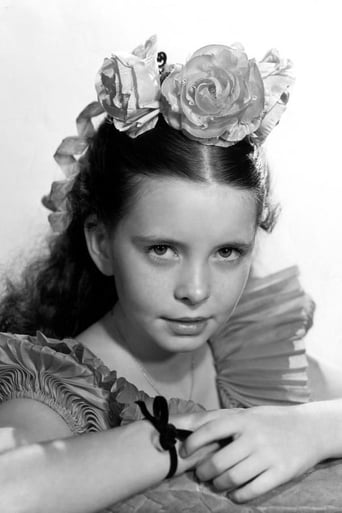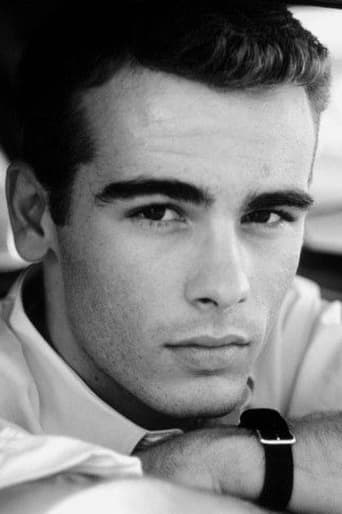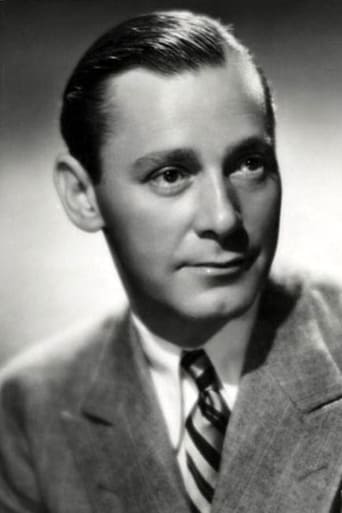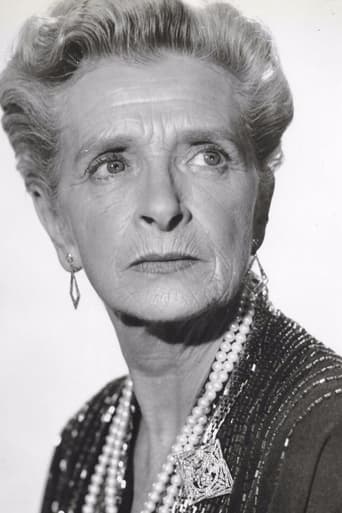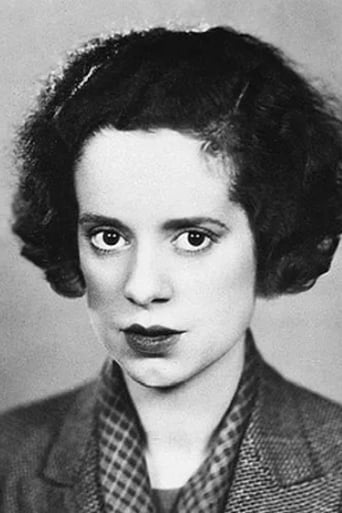JohnHowardReid
I'll always remember this movie for its predictable but startling climax when the moodily noirish black-and-white photography suddenly gives way to an amazing burst of Technicolor when the secret garden is finally presented in all its splendor. Admittedly, although this doesn't seem quite so novel today, it still has impact. Also memorable is the opening 30 minutes or so, brilliantly directed by Clarence Brown. It's a model of taut storytelling and Hollywood craftsmanship at its finest. Rarely has a noirish atmosphere been so stylishly, expensively and expansively created in a mainstream M-G-M movie. (Don't jump on me! "The Picture of Dorian Gray" is not a mainstream Metro-Goldwyn-Mayer movie. You only have to look at that film's art director credit. No Cedric Gibbons! It was written in Gibbons' contract that he was to be given an art director credit on every M-G-M movie irrespective of whether he did any art directing work on that movie or not). After this opening half-hour, however, featuring Ray June's superlatively noirish photography, the story changes direction and some of the more interesting characters drop out. Elsa Lanchester, for instance, completely disappears. Other characters are lessened in importance while the now re-pointed plot, under the guidance of M-G-M executive and occasional director, Fred Wilcox (he was M-G-M's test director for at least five years and before that he did some second unit work), heads towards a predictable climax.
dougdoepke
Intrigued by the title, I wanted to see this movie back in '49, but missed it. Probably didn't have the money. Anyway, I'm really glad to have finally caught up with it. From the stylized backdrops to the shrewd use of Technicolor to the overriding performances, the movie's a real treat, both as story and metaphor.Poor little Mary's (O'Brien) parents have died, and she's been sent to live with her cold- hearted uncle (Marshall) in a big gloomy mansion. She's been shunned and told she's homely by her parents, and now, in the mansion, her uncle refuses even to see her. As a result, she's become understandably mean and bratty. It doesn't help that in the night, she hears piercing unearthly screams, while the servants race to a mysterious upper room. Turns out it's her uncle's bed-ridden young son Colin (Stockwell) in torment. He too has been rejected, told he's crippled, and must stay in his room. Thus, he never gets to go outdoors into the sunlight. As a result, he too has become mean and bratty, like his young cousin. On the whole, I don't think I've seen more jarring behavior from adolescents than these two unfortunates, especially when they wreck his bedroom trying to outdo one another in meanness. Good thing there's a servant's young son, Dickon (Roper), to serve as an emotional anchor.But then, in her wanderings around the grounds, Mary discovers what amounts to a strange presence. It turns out to be a secret garden that no one ever talks about. Its grounds are surrounded by a high wall and a locked gate kept hidden by overgrown brush. But every time she pokes around, the gardener shoos her away. Naturally she's intrigued. What's in there, and why are the contents kept locked and secret. Seems Dickon, her frequent companion, would also like to find out. Now, unknown to them is the uncle's story behind the garden. Seems the uncle was having tea with his beloved wife in the garden when it was open and happy. But then out of nowhere a tree branch fell and crushed her. Ever since, he's been haunted, trying to bury the memory behind a locked gate. As a result, he too has become withdrawn and unhappy, thus adding to the travails of his young son and niece. Now, except for the servants, it's an intensely unhappy household.All in all, it's hard for me not to see the "secret garden" as a kind of metaphor for the inner lives of the three family members. I want to merely suggest the following view of what may be going on in the subtext, without claiming it was anybody's "intended" meaning. Now, all three for various reasons, have sealed off their inner lives not only from others but from themselves. Thus each harbors his or her own locked "secret garden" and allowed it, like the real one, to become untended and unflowering. Hence their unhappiness. But where to find the key to unlock the gate not only to the real garden but to themselves. The raven-- perhaps standing for free flight-- finds the real one; Mary, I think, finds her own inner key in the yellow daffodil blossom a beautiful sight. When she holds it up, it shows her what the garden could become if it were tended. That she needs to unlock the gate comes from her seeing her outer self in the tormented Colin. By helping him, she's also helping herself to open up to what's been sealed off. In Uncle's case, he more implausibly adjusts through knowing that the garden is again open and flowering. The tending is thanks to Dickon, Mary, and Colin who have since joined together, instead of remaining enclosed and apart. Thus the "secret garden" is no longer secret, either the real one or the metaphorical one. Using Technicolor to express this transformation from the gray was, I think, a daring and striking move. Now all four sit together, enjoying the garden and each other. A happy family, at last.It's O'Brien's film that she carries in effective fashion. At times, she's close to going over the top, yet her presence remains a strong one throughout. Stockwell too registers in a difficult role, requiring screaming hissy-fits that O'Brien answers in kind. Perhaps surprisingly, the illustrious supporting cast hasn't much to do. Marshall has only a couple extended scenes, while Lanchester provides a dollop of comic relief in her one extended scene. As the third member of the youthful trio, Brian Roper provides solid support. Too bad he didn't stay in the USA. On the other hand, I can't help thinking that George Zucco's benevolent doctor was an effort at compensating for Aubrey Mather's corrupt medical man who keeps poor Colin in unneeded leg braces.Anyway, the movie's a fine, atmospheric production from MGM, with a strong storyline and a good moral. It may have taken decades, but I'm glad I finally caught up with it.
abcj-2
I love this classic Margaret O'Brien version. Margaret embodies the spoiled and orphaned Mary Lennox. Herbert Marshall plays her brooding uncle and a young Dean Stockwell plays her crippled cousin and rival in the pitching a fit department. These child stars were powerful actors whose performances rival most any adult. Gladys Cooper plays the strict and prim housekeeper, and the delightful Elsa Lanchester plays the maid who cares for Mary and introduces Mary to her brother, Dicken. Mary and Dicken explore the grounds and discover the secret. Along the way, Mary and Dicken coax her cousin outside. Of course, Mary's uncle isn't thrilled with the changes upon his return from an extended absence.This film's amazing cast, beautiful Technicolor scenes in the garden, bittersweet story, and that good old happy ending that I love make this a classic keeper for the family or any individual who enjoys being visually immersed into great literature. I highly recommend this film.
mmackinn1940
The predictability of the ending could not overcome the impact of contrasting the outside world in black and white and the garden in color.Though this has been done in "The Wizard of Oz" in 1936, the use of this technique has lost none of its appeal. In fact, the revelation of the father at the end could not be as significant if the contrast had not been incorporated into the film. The role of the raven as an almost human sentinel who significantly reveals the location of the key to Mary is underestimated by most reviewers. Also overlooked is the gardener, who as an adult is aware of the garden, but keeps its secret, adding to the specialness of the keepers of the secret. The garden may be for the young, but also for those who see hope for the future.

